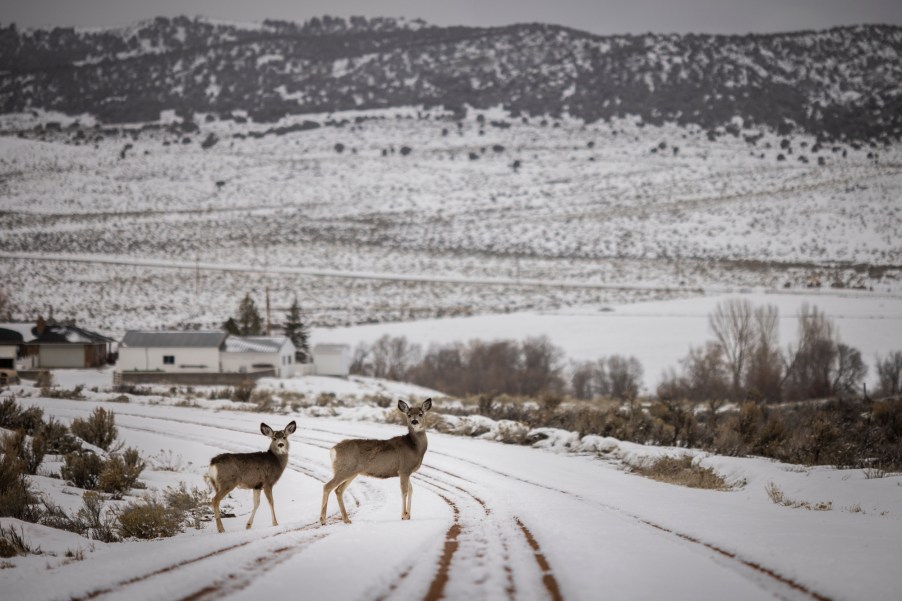
If You Hit a Deer, Is It Possible to Take Home the Meat?
Even while taking proper precautions driving, hitting a deer can be difficult to avoid. If you hit a deer, you may be left with costly damage to your car, but some drivers might think there is at least one silver lining in the meat from the deer. Is it legal or safe to take the meat from a deer home with you?
Hitting a deer can severely damage your car

Collisions involving deer can happen any time, but they are most common from October to December. Deer are large animals, and hitting one can do a lot of damage to your car. According to Carparts, hitting a deer can shatter headlights, break front bumpers, damage windshields, and more.
In addition to the damage to the vehicle, passenger safety also needs to be considered. With high-speed collisions, injuries to drivers and passengers are always possible, even when hitting a deer.
While drivers should always attempt to avoid hitting deer, some cars suffer more damage than others in wildlife collisions. If you drive a smaller car, you might see worse damage from a deer. Larger vehicles may avoid some more dangerous types of damage, like a deer hitting the windshield, but they are not immune to damage either.
Can you take home the meat of a deer you hit?
No one wants to hit a deer. Even if the damage to a car is minimal, the situation likely still leaves the driver startled, and no one wants to hurt an animal. However, some want to make the best of the situation by salvaging the meat from the deer. Is this something that can legally be done?
The answer to that question depends on your state when you hit a deer. Erie Insurance states that it is legal in some states and illegal in others. Even if it is legal, you must take additional action before taking the deer. You may need to contact the police first, or you might have to obtain a specific type of tag similar to those used in hunting.
Legality is one matter to consider, but you should also consider the safety of the meat if you plan on eating it. Live Science says that generally, a deer killed in a traffic accident is just as safe to eat as a deer that was hunted, but there are still other factors to consider.
Time is essential in taking deer meat. If you leave the deer sitting on the highway for too long, bacteria may start to grow. This can happen in as little as 10 minutes. So acting fast is essential. With this in mind, you should also not pull over to take meat from a deer that someone else had hit. There is no way to know how long it had been sitting out, and the meat could be contaminated.
How auto insurance covers accidents involving deer
You will be covered for a collision with a deer if you have comprehensive car insurance. Allstate notes that this coverage protects drivers from damages outside of collision coverage, such as fire damage or theft. Animal damage is another area included in comprehensive coverage, so this is what you will need to file a claim for hitting a deer.
Taking meat might seem like the only upside if you hit a deer, but it’s more complicated. There are legal barriers and potential health issues that make harvesting the meat likely more trouble than it’s worth. Instead, filing an insurance claim seems the best way to make the most of a bad situation after hitting a deer.


